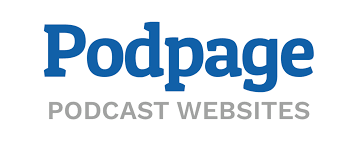Podcast discovery has always been the source of much debate. Ask some listeners, and it’s a problem that needs to be solved. Ask others, and they’ll tell you they’ve never had any issues finding new shows to listen to.
There’s more to podcast discovery than simply finding content, though. The discovery process doesn’t end when a listener lands on your show, looks over your description and episode titles – or even when they hit play.
Podcast discovery is a journey, not an event.
At The Podcast Host, we’ve always made it our business to understand what attracts listeners to the shows they love. After all, our audience are podcasters who want to make content that’s magnetic to their target audience.
Our initial Podcast Discovery Survey report was published in early 2020, and we were keen to revisit it in 2024 to see what (if anything) had changed. So we did – and here are the results…
Who Took Our 2024 Podcast Discovery Survey?
Our primary aim was to reach podcast listeners, but almost all creators are listeners, too. Of course, there’s a valid concern that habits and views can differ wildly once folks “know how the sausage is made”, so we were prepared to split out this data to showcase the listener-only stuff as the big headlines.
With that all said, there were no clear patterns or significant differences between the different types of respondents, so separating the data out would only make this report three times as long as it needs to be.
About those respondent types, though. We asked folks which of the following best describes their relationship with podcasting:
- 56% answered, “I’m a listener”
- 25% answered, “I’m an experienced podcaster who also listens to other shows”
- 19% answered, “I’m a listener first, but also an aspiring or early-stage podcaster”
166 people took the survey, which we promoted through our content, podcast, and email newsletter.


We also incentivised podcasters to share the survey with their own audiences, and were delighted to partner with Podpage – the best place to build a podcast website – to help expand the survey’s reach.
Now, on to that data…
Is Discovering New Podcasts Easy?
We asked, “Do you find it easy to discover new podcasts that speak to your interests?”


- 67% said yes
- 27% said no
- 6% didn’t know
Most listeners seem happy about podcast discovery, but over a quarter of respondents struggle to find new content. So, how big a problem is this?
Whilst one in four might seem like a lot, and there is always room for improvement, these numbers might not be too dissimilar from other mediums.
For example, a 2022 study from Accenture reported that 60% find it difficult to search for new TV shows within streaming apps, and finding new music can be a fragmented process spread across multiple platforms, too.
Hopefully, we will see some creative and innovative ways to improve the podcast discovery experience in the near future. However, considering the open nature of podcasting, we seem to be doing okay!
Where Do People Find New Podcasts?


We asked, “You want to find a new podcast – what do you do first?”
- 50% said they would open up their preferred podcasting app (Apple Podcasts, Spotify, Overcast, etc)
- 13% said they would listen out for recommendations on the podcasts they already enjoy
- 12% said they would directly ask someone they know who likes the same stuff
- 11% said they would use a search engine like Google or Bing
- And 10% said they would ask on social media or in an online community
“Search on YouTube” was a distant sixth, barely hitting 1%, while searching via AI or on TikTok didn’t get a single hit. These stats might well look different a year from now, but predictions are outside the scope of this report.
Now that we’ve seen some data about what respondents claim they do, how about what they actually do?


Let’s talk about the last podcast you listened to. How did you initially discover it?
- Browsing a podcast app, directory, or chart – 19%
- Through a social media post by the podcast creator – 16%
- I heard about it on another podcast where it was mentioned, featured, or reviewed – 14.5%
- It was recommended to me by someone offline (without sharing a link) – 13%
- It was recommended to me by someone online (with a link) – 13%
- The creator was interviewed on another podcast – 6%
- Search Engine (Google, Bing, etc. – 5.5%
In the best of the rest, platform algorithms barely hit 3%, and AI recs were at 0%. The data shows that podcast apps and directories are still the go-to places for most when seeking out a show, but the ways listeners actually find something they like are a lot more diverse.
Searching via Podcast Apps
The majority of podcast fans take to their preferred apps and directories to discover new shows. But what do they do once they get there?


- I type a topic into my app’s search bar and choose from the results – 70%
- I browse the categories I like to find new shows – 21.5%
- I see what the app’s algorithm recommends based on what I already listen to – 6%
- I browse through the chart or ‘featured’ sections – 2.5%
Topic search makes perfect sense as a way to discover new podcasts, but not all apps (Overcast, for example) make that easy. With that said, over 70% of consumption takes place on Spotify and Apple Podcasts, and topic search works fine on both.
Category recommendations are working well for a lot of listeners, too. The strength of this method is that recommended shows tend to be those who’ve stuck at it for a while, and have published a decent amount of episodes. A topic search might find you a good episode, but it doesn’t guarantee that you will find a good show.
What Attracts Podcast Fans to Hit Play on New Shows They Discover?


As I mentioned earlier, podcast discovery is a journey, not an event. Your show might catch the attention of a potential new listener, but what will encourage them to hit play?
We asked respondents to grade the following factors out of five. Here are the results, from most to least important:
- The podcast’s description – 3.7
- The podcast’s episode titles – 3
- The frequency of new episode releases – 2.8
- The podcast’s ratings and reviews – 2.4
- Whether you’ve heard of the guest – 2.3
- The podcast’s artwork – 2.1
- The name of the podcast – 2.0
- Whether you’ve heard of the presenter – 1.9
- Whether the podcast has a social media presence – 1.4
- Whether you know what the host looks like – 0.7
- Whether the podcast has a video component – 0.6
Description, episode titles, and release frequency were the top three (in that order) back in 2020. This shows how important it is to signpost exactly who your show is for, what you’re offering, and why they should listen. Delivering new content consistently is something podcast fans value highly, too.
On the flip side, video appeared much further down the list – despite the hype around how essential it is. Other studies and data may point to the boom of podcast consumption on YouTube, but there’s evidence to suggest that most podcasts on there are still “static image” shows that are listened to, rather than “watched”.
Speaking of visuals: of those who did watch video podcasts, we asked them about platform preference. 57% said YouTube, whilst 19% preferred Spotify. It’s a small sample size, but the high numbers on Spotify are slightly surprising, purely because YouTube is such a behemoth. Is Spotify’s investment in video podcasting starting to pay off?
Is Episode Length Important to Podcast Discovery?
Recently, we argued that long-form content was still alive and thriving in podcasting despite a drive towards short-form content in most other mediums. So, does the data back that argument up?
We asked respondents about their episode length preference upon finding a potentially interesting show:


- 53% prefer it if the episodes are within the 15-60min range
- 32% don’t have an episode length preference
- 15% prefer it if the episodes are longer (over an hour)
- 0% prefer it if the episodes are shorter (less than 15min)
Whilst nobody would prefer a show to be sub-15 minutes, that isn’t to say you won’t find hugely successful short-form podcasts out there. However, the data shows that the culture of podcast consumption is to spend time with a topic. Compare this to the hurried (and often black-and-white thinking) nature of short-form video, and we find podcasting is a place where folks can go deeper into the nuances of any given discussion.
And that can only be a good thing!
Is Back Catalogue Important to Podcast Discovery?
We’ve learned that potential listeners are interested in how often you publish new episodes, but what are their overall thoughts on your back catalogue?


- 55% said a back catalogue doesn’t affect their decision to listen
- 29% said they prefer podcasts to have a big back catalogue of episodes
- 13% said they prefer when a show has a small amount of episodes, so they can catch up easily and follow along
- 3% said they usually don’t listen to the back catalogue
So, whilst demonstrating commitment and consistency is vital to potential new listeners, don’t worry too much if you’re just starting out and haven’t built up that body of work just yet.
That said, having only 3% who specifically don’t listen to back episodes is brilliant news for podcasters, and a great incentive to keep publishing new content.
Think about it: if you hit 50 hour-long episodes, each time you find a new listener, they will potentially spend 50 hours with you, your message, and your CTAs.
This is a huge factor in why consistency builds success in podcasting, and it’s a shame a lot of creators will quit before they reach that critical mass of published episodes that sends their growth into overdrive.
How Long Will Potential Listeners Give You to Hook Them?
Again, harking back to the “podcast discovery is a journey, not an event” statement: your show might have all the ingredients optimised to make someone hit play, but the job’s not done yet.


When listening to a new show, how long do you give it to hook you in, before you give up on it?
- 40% – up to 15mins
- 29% – one full episode
- 17% – five minutes or less
- 11% – two full episodes
- 3% – three to five full episodes
- 1% – six or more episodes
- 0% – one minute or less
The top three remain pretty consistent with our Podcast Discovery in 2020 Report. “Up to 15 minutes” was top, “Five minutes or less” was second, and “One full episode” was third. The percentages of the top two are higher than they were last time, so, if anything, podcast listeners may have become even more patient.
This is heartwarming data, especially compared to video-first content, where typical advice to creators is to hook them in seconds rather than minutes or full videos.
With that said, podcasters shouldn’t take this as permission to open with a ten-minute conversation about dog farts (unless you run the dog farts podcast, I hear it’s a blast!), so set up your topic and get into the meat as soon as you can.
How Important is Audio Quality to Podcast Discovery?


Nobody can judge your audio until they’ve hit play, so how does sound quality affect their decision to keep listening?
- 63% are fine with “good enough” audio, if the content is great
- 37% prefer the sound quality to be similar to a Pro radio (NPR, BBC) show
A preference doesn’t guarantee they won’t keep listening if your audio doesn’t sound like This American Life or Invisibilia. But whether or not four bros eating pizza around a Blue Yeti will be “good enough” is another matter entirely. If you suspect your audio is hampering your growth, it isn’t difficult or expensive to fix.
Do Adverts Affect Podcast Discovery?


Ads can help podcasters earn the cash they need to keep going, but there’s always the risk of annoying and frustrating the listener. We asked respondents how ads affect their decision to keep listening:
- 92% tolerate ads, within reason
- 5% won’t listen to a show with adverts
- 3% enjoy listening to relevant ads
This data is almost exactly in line with our 2020 report and shows that the vast majority of listeners are reasonable enough to understand that free-to-consume content doesn’t mean it’s free to create.
“Within reason” may be a perspective broad enough to drive a billboard-plastered bus through, so use your common sense here and don’t kick the arse out of it. Do you really need that fifth nose hair remover sales pitch in your fifteen-minute episode?
Podcast Discovery Problems, According to Listeners
While this year’s data suggests podcast discovery is improving in many ways, I’m sure we can all agree that it’s far from perfect.
Many survey respondents used the comments section to share where they think podcast discovery is going wrong in 2024.
Here are some of the highlights:
- “The platforms need to invest in promoting podcasts to people who listen to similar podcasts; this will benefit podcasts with smaller audiences.“
- “A good search/recommendation is still missing.“
- “Spotify needs to sort out its discovery; it’s tedious.”
- “I think the industry needs to do more to promote podcasting to new listeners.“
- “I don’t think a Podcast needs to be in the ‘top 10’ to be great. I think there are a lot of really good podcasts that have a very niche audience and deserve more recognition. I love the JRE, but I love listening to podcasts that do a brilliant job at catering to their audience of 1k. It shouldn’t always be about numbers. It should be about the value it brings.”
- “Algorithms do a huge deal of damage as they target only the popular shows, thanks to flawed metrics for what is considered “popular”. The charts are mostly made up, as we all know, so why refer to them?“
- “The lists of ‘top 20’ podcasts are usually not very helpful, as they tend to be just based on what’s already popular, and that tends to mean it’s a tie-in with something else or trading on the name of a famous presenter rather than something genuinely interesting.”
- “The podcast index should make it easier to search their categories.“
Discovering Podcasts in 2024: 3 Key Takeaways
Podcast discovery challenges us all, both as listeners and creators. Barriers sometimes hinder us from finding new content, but few mediums or platforms are free of such issues.
So, what can we learn as we wrap up our 2024 Podcast Discoverability report?
1. Discovery Is in the Hands of the Podcaster
If you’re a creator who’s irked at your show not being “discoverable,” you can look at it in one of two ways. You can wait for some smart techie to magically solve the problem for you, or you can take responsibility for it yourself.
Podcast promotion and marketing is a whole subject of its own, but many creators complain about lack of visibility when there’s so much more they could do to improve their website, episode titles, show notes, and more. So, what could you do today to improve your podcast’s chances of being found by more people?
2. AI Podcast Discovery Has a Long Way to Go
The world has gone AI-crazy these past two years, and we’ve seen some remarkable disruptions and innovations in that time.
Podcasters use AI to generate show notes, episode titles, topic ideas… some even use it to create entire podcasts. But its impact doesn’t seem to have bled through to podcast discovery just yet.
AI will almost certainly grow more into this role in the coming years, but how that will look is anyone’s guess.
An obvious area would be podcast apps themselves. Most people still open up their favourite listening app or directory in an attempt to find new content, but often, the search tools are substandard and limited.
With features like transcription now commonplace due to AI, it should be easier to search topics and discussions within podcast apps. Could we see more adoption of these functions in the near future? It’s entirely possible.
3. Podcasters Can Rest Easy About Creating Long-form Content
Finally, we should look beyond podcast discovery as simply seeing a podcast for the first time. How does someone go from hitting play, to listening through a full episode, to hitting ‘subscribe’ or ‘follow’?
In some other content mediums, there’s a frenzied drive for fast and short content. This prompted us to ask the question, “Is there a future for long-form content?”
The answer, it seems, is yes. In podcasting, at least.
40% of respondents will give a new podcast up to 15 minutes to hook them, whilst 29% will stick around for the full episode. This is a far cry from the world of YouTube, where creators only have a handful of seconds to capture your attention, like some hurried salesman jamming your door open with their foot.
What’s more, over half of respondents enjoy episodes up to an hour long, while 15% said they prefer content that runs over the hour mark. No one—literally no one—was in the market for new content that ran under 15 minutes!
Podcasters shouldn’t take this data as permission to record episodes with rambling off-topic intros, but there’s also no pressure to tie complicated, nuanced topics up with a neat conclusion in less time than it takes to boil the kettle.
If you’ve enjoyed this report, then… we do others. Check out Podcraft Perspectives to stay up-to-date with our latest podcasting stats and data.
And if you didn’t enjoy this report, you did well to stick with it this far down. Thanks all the same!





